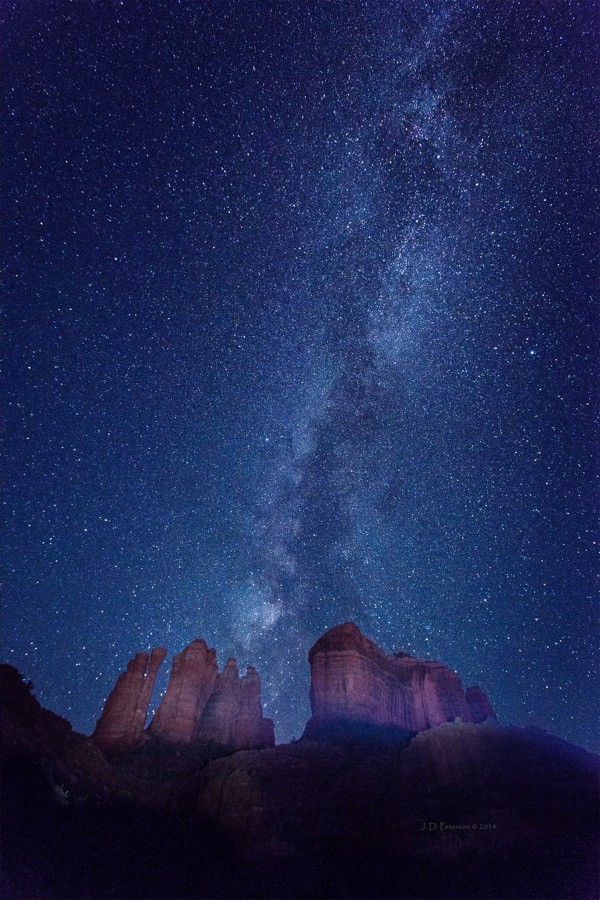Protecting Sedona’s Dark Skies
Sedona’s dark skies are more than a beautiful backdrop—they are a vital connection to the natural world, a window into the universe, and a sanctuary for wildlife. In the Verde Valley, where the night sky remains largely untouched by urban light pollution, we have a rare opportunity to experience the cosmos as our ancestors did. But preserving this wonder requires action.
Why Dark Skies Matter

Photo courtesy of Jim Peterson
A True Connection to Nature
When you visit Sedona, be sure to spend some time outside at night, and you’ll see what people have looked up to for centuries—an unfiltered view of the cosmos. Whether you’re using a telescope, binoculars, or just your own eyes, that vast stretch of stars reminds us that we’re part of something much bigger.
Wildlife Needs the Dark
Nocturnal animals rely on darkness to hunt, migrate, and reproduce. When artificial light floods the night, it throws off their instincts. Even creatures that sleep at night—like us—suffer when artificial light disrupts natural cycles.
A Different Kind of Visitor
Sedona doesn’t have neon signs or gaudy lights—instead, visitors come for the quiet and for the pristine sky that complements the area’s natural beauty. Our designation as a Dark Sky Community draws visitors who appreciate these things, and keeping our skies dark ensures that future generations can experience the same wonder.
What You Can Do at Home
Protecting the night sky where you live starts with small changes:
Use Shielded Lighting – Outdoor lights should point down, not up, to reduce glare.
Choose Warmer Bulbs – Warm light is easier on our eyes and better for our health and the quality of the night sky (use 3000K or lower; 2700K is readily available).
Limit Brightness – Less is more. Use just enough light for safety.
Install Motion Sensors – Keep security lights off until needed to cut unnecessary glow.
Turn Off Decorative Lights – If you don’t need them on, switch them off—especially late at night.
Join the Movement
 Sedona, the Village of Oak Creek, Camp Verde and Cottonwood have all earned Dark Sky Community status, but we need to keep working to protect this rare resource.
Sedona, the Village of Oak Creek, Camp Verde and Cottonwood have all earned Dark Sky Community status, but we need to keep working to protect this rare resource.
Visit Dark Sky International to learn about how you can help. Together, we can keep our night skies dark.

